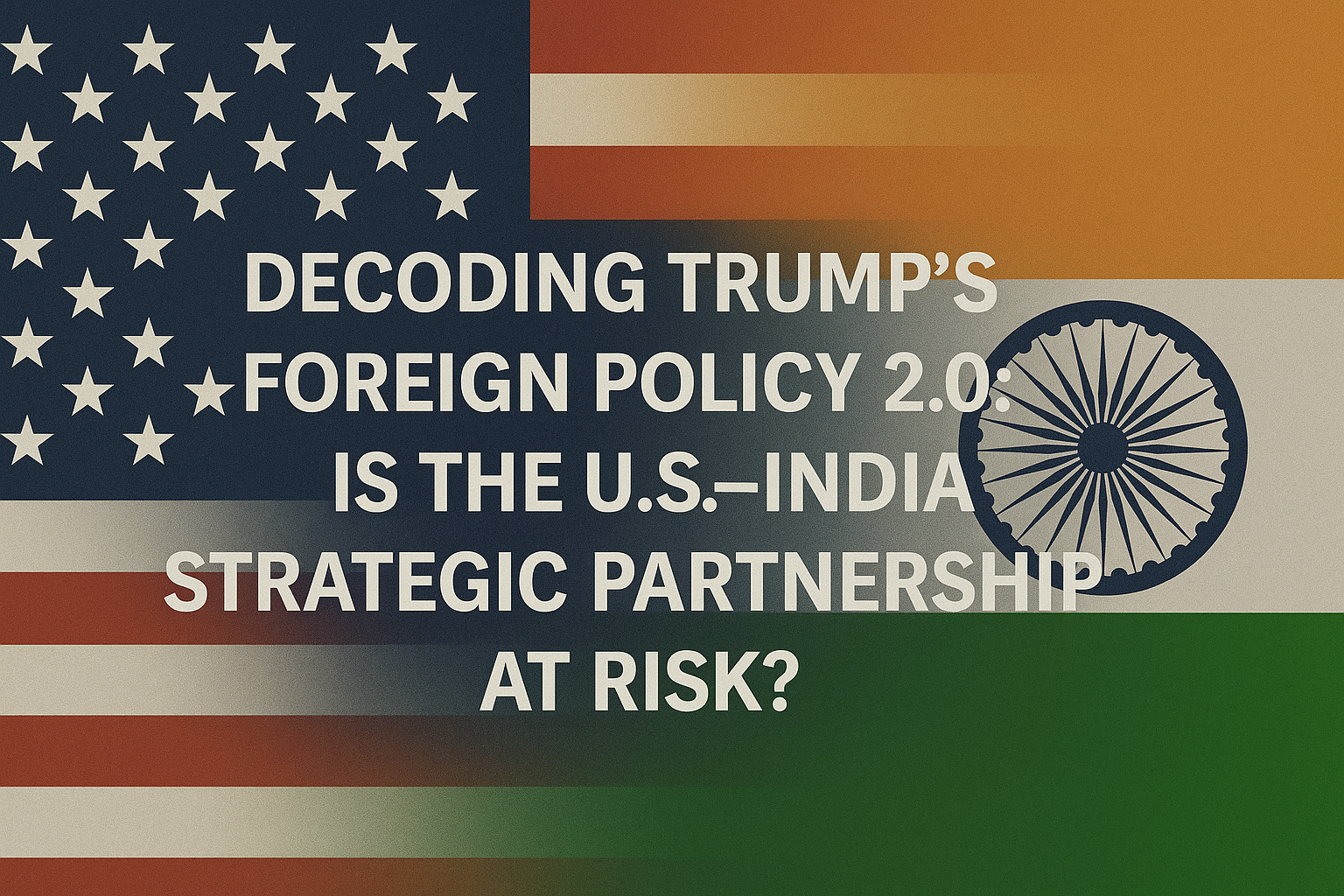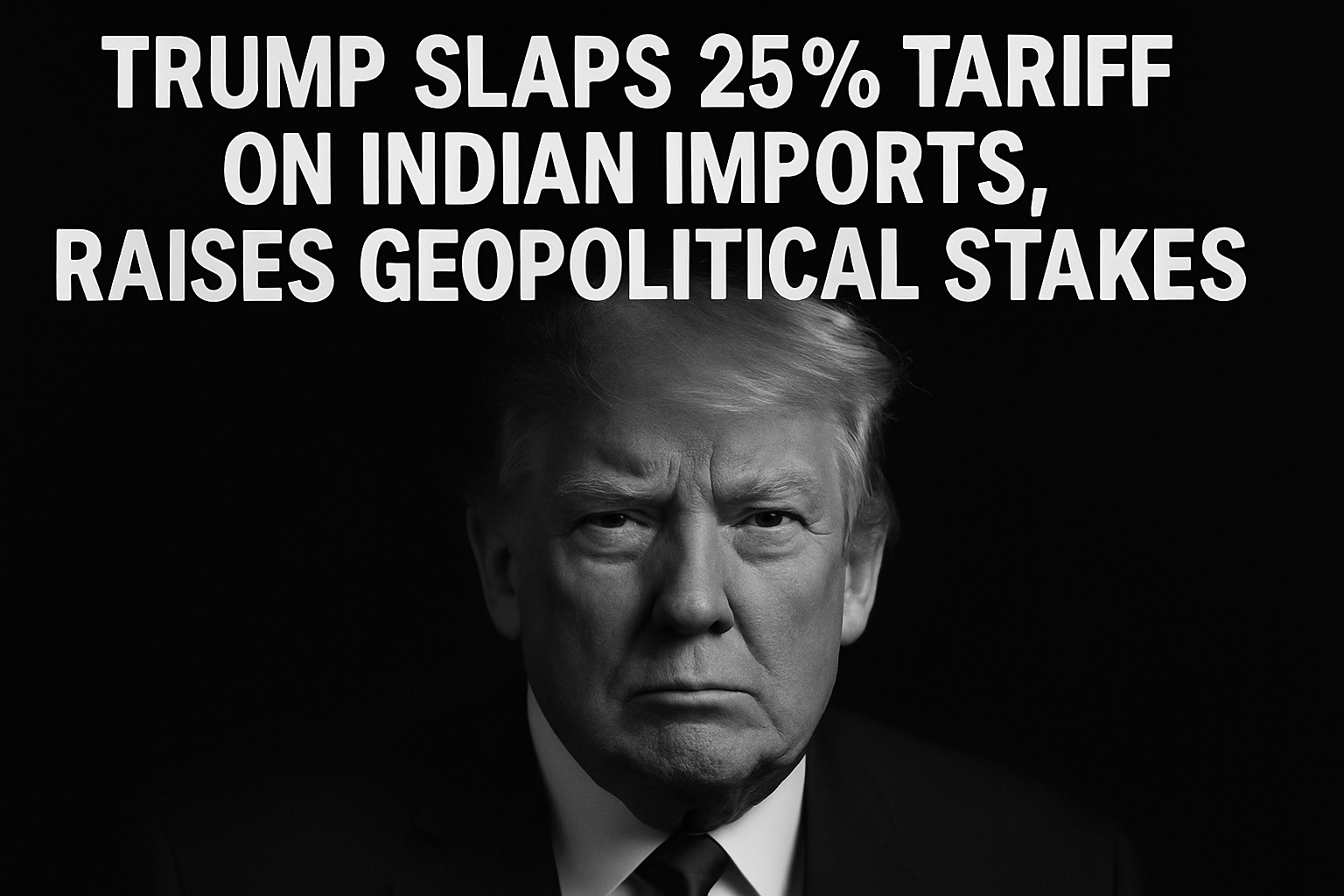Richard Haass, a veteran American diplomat and foreign policy expert, warns that Donald Trump’s second term marks a clear departure from predictable diplomacy, and India may be facing the consequences of this shift. In a wide-ranging interview, Haass outlined how the U.S.–India relationship is regressing into one of mutual suspicion, driven by both structural disagreements and strategic missteps.
From Strategic Partners to Skeptical Capitals
Haass acknowledges that Trump’s rhetoric calling India a "dead economy" and threatening penalties over Russian oil trade has shaken the trust built over the last two decades.
“Treating India and Russia in the same breath is unfair,” he said, adding that both New Delhi and Washington are now dealing with each other with a “degree of suspicion.”
Haass likened the current phase to the pre-1990s Cold War era, when mutual mistrust defined bilateral ties. He warned that if left unchecked, the situation could undo years of bipartisan momentum.
Trump’s New Doctrine: Unilateralism Over Alliances
According to Haass, Trump 2.0 is not isolationist it’s unilateralist. This version of Trump is:
- Willing to alienate long-term allies.
- Less concerned with maintaining global order.
- More focused on transactional outcomes, such as trade imbalances and defense deals.
“This is not a temporary phase… this may be the structural foreign policy outlook of Trump’s second term,” Haass said.
Why Trump Is Targeting India
Haass points to two longstanding U.S. frustrations with India:
- Trade Protectionism: Barriers faced by American firms in India’s domestic markets.
- Russian Oil Imports: Despite global sanctions, India continues to import discounted Russian oil.
He emphasized that these concerns are not just Trump’s they reflect broader U.S. strategic anxieties.
Still, Haass called Trump’s language “unfortunate,” arguing that public threats are counterproductive and violate the spirit of India’s strategic autonomy.
China in the Room: The Strategic Undercurrent
Haass agreed that China remains a key factor in how Washington views India. While the U.S. never expected India to become a formal ally, India’s role as a democratic counterweight to China has long been a pillar of American strategy.
“We didn’t want China to feel it had a free hand… either against Taiwan or against India,” he said.
Yet, he cautioned that recent mixed signals from Trump toward China especially Taiwan could complicate that calculus, creating uncertainty not just for India, but for the broader Indo-Pacific.
Advice to New Delhi: Don’t React Emotionally Reassess Strategically
While stopping short of giving formal advice, Haass suggested that India must re-evaluate two critical policy areas:
- Market access for U.S. companies: Can India make concessions to ease tensions?
- Russian oil dependence: Can India gradually diversify, despite cost advantages?
“India has every right to defend its strategic autonomy, but it must weigh the long-term cost of ignoring American concerns,” he said.
Conclusion: The End of Predictability?
Haass summed up Trump 2.0 as a foreign policy of disruption over diplomacy a phase that’s likely not just transitional, but definitive.
“Countries worldwide must now rethink their national security frameworks in light of an increasingly unpredictable and nationalist America.”
For India, that means preparing for a more transactional, less empathetic White House, where strategic alignment will require hard choices and fewer assumptions of automatic goodwill.



